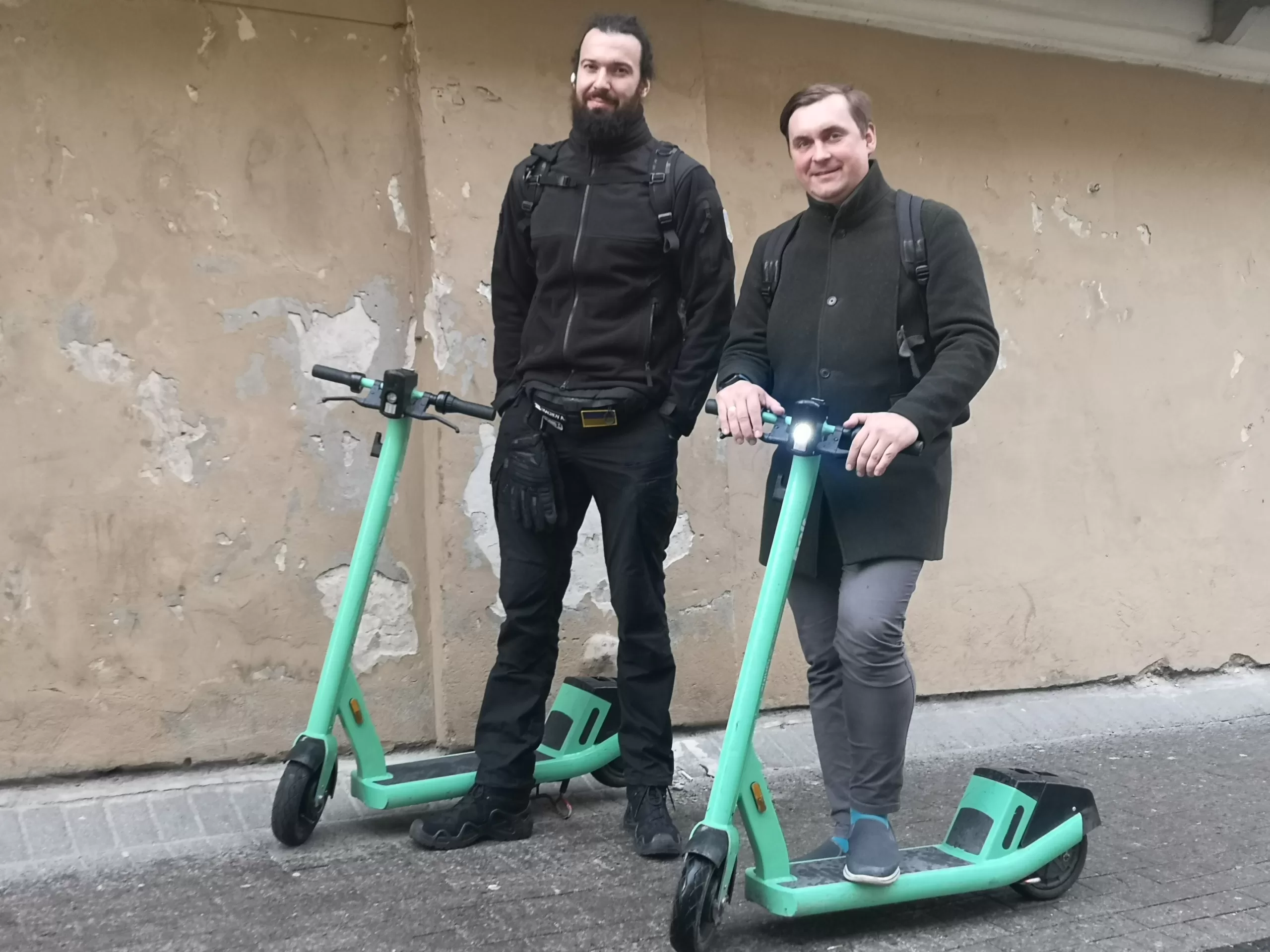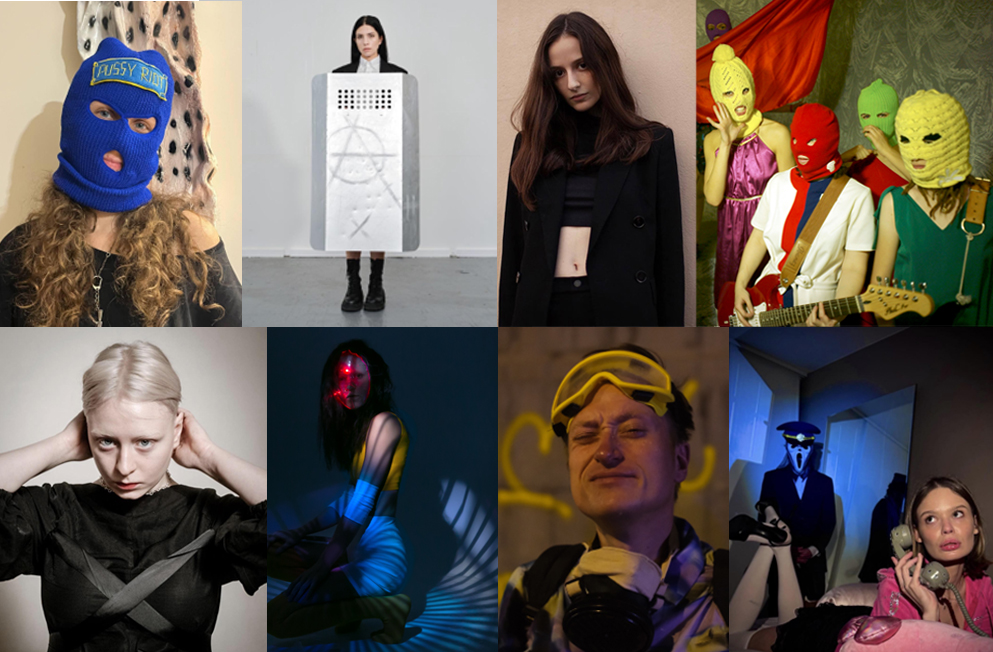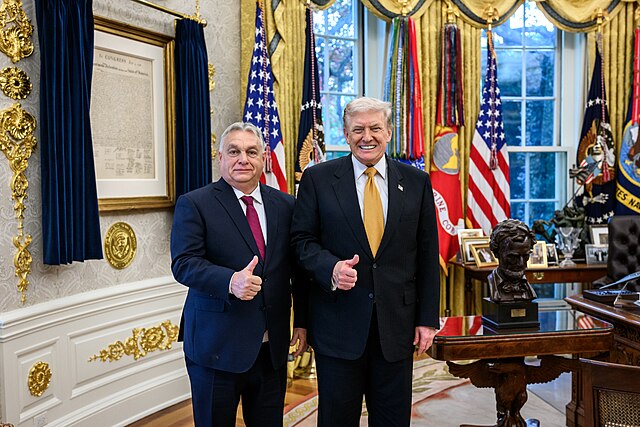Andrej Strizhak, a human rights activist and Belarus exile, uses an electric scooter to go around the streets of Vilnius’s old town.
“It is a very convenient means of transportation,” he told Index, sitting in a coffee shop at The House of the Signatories where Lithuania’s Act of Independence was signed in 1918.
Strizhak is founder of the Belarus Solidarity Foundation, Bysol, a humanitarian organisation which gives financial help to political prisoners, striking workers and other activists critical of the repressive regime of President Aliaksandr Lukashenka. Recently Bysol has also focused on aid to Ukraine in its fight against the Russian invasion that Vladimir Putin launched in February 2022.
For Strizhak, both struggles are connected.
“Belarus’s ‘freedom key’ is in Ukraine, and many Belarusians are helping fight the war in Ukraine,” he said. “If Putin fails, then Lukashenka will lose his principal ally.”
His colleague, former male model, fitness trainer and media celebrity turned political activist Andrey Tkachov, joined us in the café. Tkachov like Strizhak is in his thirties. He’s an immensely tall and striking figure, dressed in black. He oversees the management of the Medical Solidarity Fund, operating under the Bysol Foundation umbrella. He sees the conflict in stark terms.
“It is a war between good and evil. Russia is knowingly bombing hospitals and we are working on getting medical supplies and equipment.”
Bysol has raised over $10.7 million and acts as a platform for other organisations or individuals to raise funds for humanitarian causes.
Most of it has been done through cryptocurrency because, as Strizhak explained, it is “hard for the government to trace these transactions.”
During the first days of the Ukrainian war, Bysol received requests for cash to buy vehicles, drones and first aid kits; funds were needed for emergency contraceptive and rape kits for Ukrainian war victims of sexual abuse and for legal fees to pursue justice for war crimes. Within a few days, Bysol raised over $130,000 for Ukrainian humanitarian causes and for Belarusian volunteers working in Ukraine.
As the war progressed, the foundation used its money to aid wounded Belarusian fighters to obtain medical assistance, move to Poland or Lithuania and heal from PTSD. Bysol handed over radios, sets of uniforms for medical doctors and anti-thermal camouflage cloaks to the Belarusians fighting in Ukraine.
They gave others help too.
For those who refused to fight or faced repression for opposing the war, Bysol staff drafted manuals on evacuation from Belarus, Russia and Ukraine. They also posted instructions in a Telegram chat group, BysolEvacuation. Users issued advice on how to leave the war zone, discussed visa procedures and shared experiences on border crossings.
Strizhak and other activists first established Bysol in August 2020, as a response to violence against the opposition after the Belarus presidential election which saw Lukashenka winning a sixth term in office. Strizhak had already been detained several times by the police for his political activities and during the election summer, friends advised him to go on “vacation” abroad. He traveled to Kyiv, hoping to spend a month in Ukraine. There, building on his humanitarian work and crowdfunding skills, Strizhak came up with the idea of a fund-raising organisation.
He was joined in Ukraine by Tkachov, with whom he had worked during the Covid-19 pandemic and who had just been released from police custody. Tkachov had stayed in Belarus and joined anti-government protests in Minsk, witnessing police using grenades and shooting at peaceful opposition.
“The day after the elections, my friend and I took a ride around Minsk to check the aftermath of the protests,” Tkachov told Index. “An OMON (special police force) car stopped us and took us to a detention centre.” Officers gave Tkachov some “special attention” for his critical political opinions. He was handcuffed and beaten.
“Some of us fainted from the pain and from the inflicted injuries. We laid in puddles of blood and urine and prayed to be alive,” he said. Eventually, he lost consciousness when a soldier stepped on his neck.
“I regained consciousness only when police brought me to the prison, and a soldier poured water on me,” he said.
Together with the other 35 detainees, he spent three days in a cell suitable to accommodate 10 people.
In the late autumn of 2020 both dissidents decided to move to Lithuania, a member state of the EU and NATO, determined to expand Bysol. “Ukraine did not feel safe enough for us,” explained Strizhak.
Strizhak first raised money through a friend in the Netherlands who opened a fundraising account on Facebook. “We couldn’t do it from Belarus or Ukraine. Only people who live in ‘the white-world’ – the USA or Western Europe – can open fundraising accounts on Facebook,” he said.
Help started pouring in and more so when they were established in Vilnius. The most active supporters of the fund were and still are the Belarusian diaspora.
Walking a thin line between publicity and safety, Bysol has come to rely on cryptocurrency. Using traditional currency, customers rely on bank services and often pay high fees for financial transactions that might take a few days to complete, but cryptocurrency is a digital currency based on a network spread across many computers, unregulated by central government authorities. Unlike traditional financial institutions, opening a cryptocurrency wallet does not require identification verification, credit, or background checks: a person needs just a laptop or a smartphone with an internet connection and there is virtually no way for the government officials to stop, censor or reverse these transactions.
People find Bysol through social media and by word of mouth and the foundation follows a rigorous verification process before providing any help.
“We can’t name recipients and they can’t say ‘Thank you’ to us,” Strizak said.
Tkachov focuses on supporting Belarusian medical professionals and medical causes.
“Medical doctors actively expressed their opposition to the government’s actions. They were the ones who saw wounded, beaten and dead protesters. They described people arriving at the hospital as if they were brought from a battlefield with gunshot wounds or limbs ripped off by grenade explosions,” he said. Many medical doctors who expressed their disagreement about the government’s actions were laid off from state-run hospitals.
The Department of Investigation Committee in Minsk has initiated criminal proceedings against Strizhak who is accused of providing “training of individuals to take part in group activities, grossly violating public order” and financing extremism. Bysol itself has been labelled an extremist organisation and Belarus has listed its founders on the country’s wanted list and the wanted list of the Commonwealth of Independent States (CIS), made up of Russia and other ex-Soviet states still in Russia’s orbit.
Tkachov said he was always interested in history, especially events leading to the outbreak of World War II. “I could not understand why the powerful states could not prevent it,” he said. “Witnessing unfolding events in Ukraine, I finally understood it. When I think about how much more needs to be done, I worry my efforts are not enough, or are not effective enough. We need to help many people.”
Since his early years, Strizhak was determined to bring change to society: “I can’t tolerate hypocrisy, lies or double standards,” he said. He travelled to the Donbas region of Ukraine from 2017 to 2020 to document war crimes committed by pro-Russian separatists. He has mourned the death of close work partners.
Although he is now far from the war zone, he visualises his efforts with a consciousness of the samurai way of “dying before going into battle.” Like Japan’s ancient warriors, he said, he is waging his humanitarian efforts fully committed and without fear.






